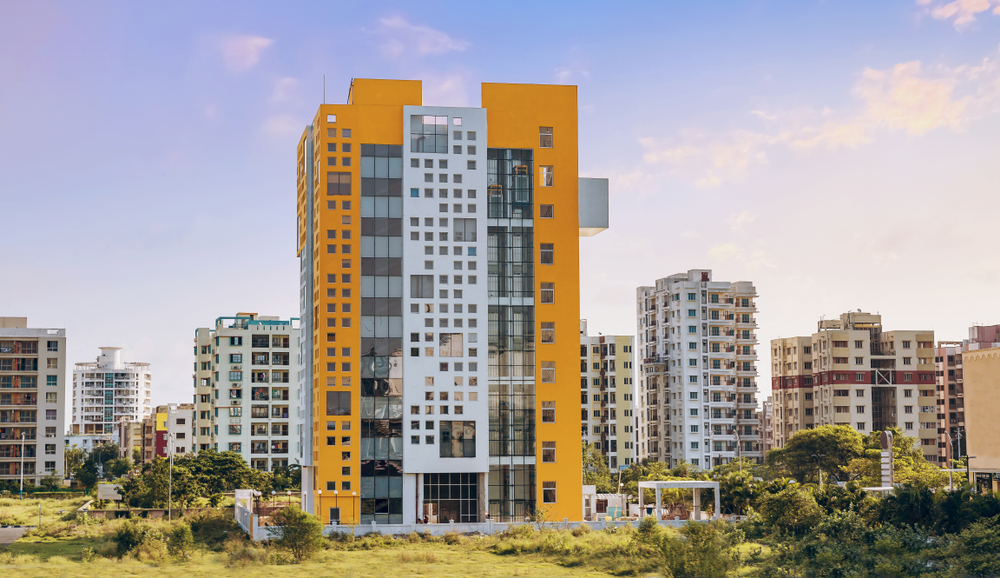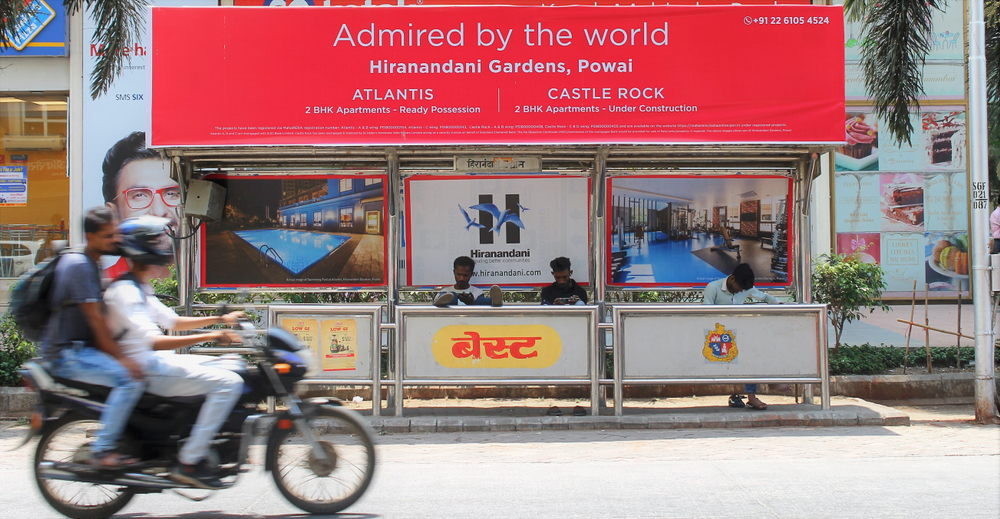Real Estate: Country Rental Fact Sheet
Welcome to India!
Expatriates from around the world live and work in India’s bustling metropolises. They enjoy the country’s warm year-round climate, low cost of living, cultural diversity, and friendly people. The most common types of housing available are apartments and single-family houses, with the latter often being within gated communities and having higher rates. Although types of accommodations are few, there are a wide range of rental rates, which are dependent mostly on size and location. Generally decreasing the further from business districts, rates can range from easily affordable for standard accommodations in the suburbs to costly for a luxury unit with amenities in a city center. Rental rates are modest in cities such as Hyderabad, New Delhi, Bangalore, and Kolkata, while Mumbai is known for having the highest cost of living in the country. To avoid—or at least minimalize—the daily frustrations presented by commuting in India’s congested cities, you should find housing as close as possible to where you work or go to school. Prospective renters beginning their search will benefit from using a translator or multilingual real estate agent, as well as extensive English-language property listings.
Types of Rental Properties
- Apartments are the most widely available rental property in India. Buildings range from low- to high-rise complexes, where units typically include a combined kitchen and living area, along with bedrooms and possibly a small storage area. Some have balconies or access to rooftop gardens. Newer developments are more likely to provide residents with access to common areas such as a gym, swimming pool, or laundry facility.
- Single-family houses also are a common housing option. They are often located within gated communities, which are popular with expatriates for the security they provide. Although more expensive than apartments, these upscale neighborhoods are typically encompassed within a fence with a code required to enter or a security guard posted at the entrance.
Expat Neighborhoods
A variety of neighborhoods catering to expats are found throughout India’s largest cities, making it possible to find one that is conveniently located and meets your needs.
How to Find a Rental
International real estate companies handling sales and rentals such as RE/MAX (www.remax.in/rent-property) and Sotheby’s (www.sothebysrealty.com/eng/sir-india) have English-speaking agents with offices in India. These companies specialize in property listings particularly for expats. Rental listings are included as classified ads in local newspapers and on websites such as Quikr (www.quikr.com/homes), Craigslist (https://geo.craigslist.org/iso/in), Free Ads Time (https://all-provinces-of-india.freeadstime.org), and FinderMaster (www.findermaster.com). In addition, some of the most popular online portals for rental properties include:
|
|
Rental Rates and Fees
Below is a table of average monthly rental rates for apartments by size and location.
| In City Center | Average Monthly Rate | Range | Outside City Center | Average Monthly Rate | Range |
| 1-bedroom | ₹17,946 | ₹10,000–30,000 | 1-bedroom | ₹10,128 | ₹6,000–15,000 |
| 3-bedroom | ₹43,580 | ₹30,000–90,000 | 3-bedroom | ₹23,093 | ₹15,000–40,000 |
- A rental agreement signed by both the landlord and tenant should be registered at the nearest police station.
- Before renting, check to make sure that the flat’s dimensions are reported as “useable size” rather than “official size,” as the two figures can vary dramatically.
- Rent is paid in the local currency of the Indian rupee. If paying in cash, be sure to get a receipt.
- Monthly rental fees are generally quoted as “all inclusive,” meaning that any applicable fees are already factored into the price. If the quoted rental amount is “exclusive,” an additional maintenance fee may add to the monthly rent.
Lease Terms
Restrictions
Properties can be rented by foreign nationals of all countries. Proof of residency and employment are generally required for lease periods of longer than six months.
Duration
The most common lease in an Indian tenancy agreement is referred to as a lease and license agreement. It is for an 11-month term with the option for renewal. The other type of contract, known simply as a lease or rental agreement, is a 12-month contract typically avoided due to the restrictive regulations imposed by rent control laws.
Deposits
A security deposit equal to three times the gross monthly rent (two months’ rent as deposit plus one month of rent in advance) is typically required. It is not uncommon for tenants to make payments in advance, many paying for the entire 11 or 12 months upon signing the lease. Some contracts stipulate that interest must be paid on the deposit.
Pets
Pet-friendly rentals tend to be more common outside city centers in the suburbs where parks and leafy neighborhoods provide space for four-legged friends. High-end venues are more likely to have a no-pets policy; however, some landlords may be willing to negotiate on a case-by-case basis. An additional deposit or pet fee is usually required by the landlord.
Legal Issues
- Timely payment of rent is essential. Failure to pay rent for more than three months allows the landlord to initiate eviction proceedings. Landlords may also evict tenants if the residence is used for illegal or immoral purposes, the tenant makes structural changes to the premises without permission, or a tenant is found guilty of being an annoyance or nuisance to neighbors.
- Upon moving to a new residence, you must inform the nearest Foreigner Regional Registration Office (FRRO), which will update the current address listed on your Aadhaar card. This identification card must be carried at all times. An Aadhaar card is typically required to obtain utilities such as electricity, water, and phone service; however, some businesses will accept a passport, locally issued driver’s license, or Permanent Account Number (PAN) card.
Amenities
Furnished vs. Unfurnished
Apartments are generally rented unfurnished, with only essential appliances such as a hot water heater and refrigerator. Apartment buildings and condominiums typically have a shared laundry facility available. Most rentals in India do not come with ovens, as this is not a preferred cooking method in Indian cuisine, instead microwaves and tandoors are more commonly used. However, apartments catering to Western expats will likely come with a full range of kitchen appliances. An air conditioner is a must and is usually included.
Parking
Most expats do not have cars in India as driving is a hassle and public transportation is convenient and cheap. If parking is available at your rental property, it is likely to be very costly.
Utilities
Most rentals do not include utility services. Electricity, gas, internet and bundled services, water and sewage, and telephone landlines must be secured independently by the renter.
Telephone Landline
Government-owned Bharat Sanchar Nigam Limited or BSNL (www.bsnl.co.in) is India’s largest and oldest telephone landline operator. You can get connected by contacting the company online or by phone. BSNL also offers internet and mobile phone services.
Internet and Bundled Services
Along with Bharat Sanchar Nigam Limited or BSNL (www.bsnl.co.in), other popular internet providers include Airtel (www.airtel.in), MTNL (www.mtnl.in), Tata Tele Broadband (www.tatatelebroadband.com), You Broadband (www.youbroadband.in), Tikona (www.tikona.in), Spectra (www.spectra.co), and I-On (www.i-on.in). Fixed-rate packages for landline, cable television, internet, and cell phone service are available.
Electricity
The largest electricity companies providing power in India are the government-controlled Adani Electricity (www.adanielectricity.com) and Tata Power (www.tatapower.com). Using their websites, you can transfer service into your name, apply for a new connection, submit meter readings, and make payments. Activation requires valid identification and a deposit, the amount of which is based on historical meter readings for two-months of usage at your residence. Usage is billed monthly based on meter readings.
The standard electrical voltage is 230 volts AC, 50 hertz. Three styles of plugs are used: type C, also known as a Europlug, with two round pins and types D and M both with three round pins. Some European devices may require simple plug adapters. American devices, which operate at 110- and 120-volts, will require voltage converters or transformers as well as plug adapters. However, electronic appliances and devices that are either dual- or multi-voltage will not require a converter/transformer.
Water and Sewage
Water and sewage services are provided at the municipal level throughout India. Activation typically requires a deposit, the amount of which is based on historical meter readings for one month’s usage at your residence. Usage is billed monthly based on meter readings, and customers can arrange to pay online.
Gas
Bottled liquified petroleum gas (LPG) such as propane is most commonly used for cooking and heating water in Indian households. Refillable cylinders can be purchased and exchanged at local businesses, some of which offer regular delivery service. Residences equipped with the necessary piping may have a large storage tank located outside the home that can be accessed by a gas truck for refueling. Some of India’s largest cities, including Mumbai, have piped natural gas (PNG) available.
Waste and Recycling
Like water, solid waste collection and recycling are provided at the municipal level. Each household is responsible for taking their household waste to bins stationed at specified street corners. Recyclable materials can be taken to a local recycling center. In order to minimize the amount of trash going to the local dumping grounds, many residents use outdoor composting for decomposable waste.
Making Payments
Utilities such as electricity can be paid using online payment services such as Paytm (www.paytm.com), Freecharge (www.frecharge.in), and MobiKwik (www.mobikwik.com).
FAQs
Can I negotiate my lease?
The monthly rental of properties can usually be negotiated unless already specified by the landlord. The majority of negotiations will be regarding a fully “inclusive” monthly price that already factors in any included utilities and maintenance fees. An “exclusive” price does not include these costs, which should be factored in to determine your total monthly budget.
In addition, when renting an unfurnished apartment or partially furnished apartment, the requirement for additional furniture, appliances, or fittings, can sometimes be negotiated.
What additional fees should be factored in when calculating rent on an “exclusive” lease?
Exclusive leases are subject to a maintenance fee, which varies based on property and types of services provided. This fee covers the cost of communal services such as security and cleaning.
Should I have renter’s insurance?
Renter’s insurance is advisable, and some Indian landlords require it of tenants. Depending on the policy, renter’s insurance can cover everything from lost or stolen personal items to property damage due to kitchen fires, plumbing issues, inclement weather, and more. Rates are calculated based on the size of the rental property and the value of furnishings and personal effects. Most insurance companies, in India and worldwide, offer some form of renter’s insurance.
Article written for World Trade Press by Brielle Burt.
Copyright © 1993—2024 World Trade Press. All rights reserved.

 India
India 

